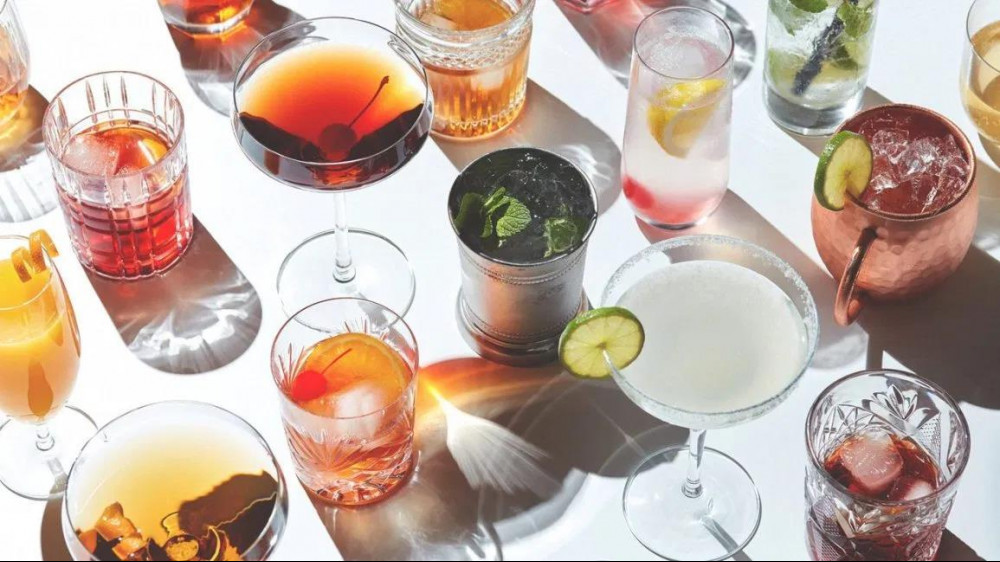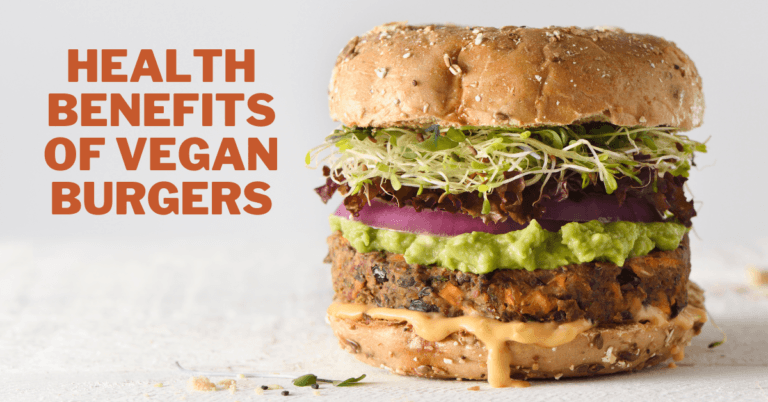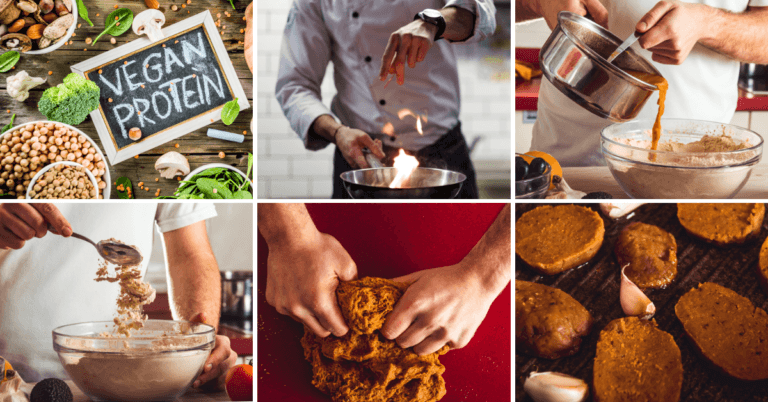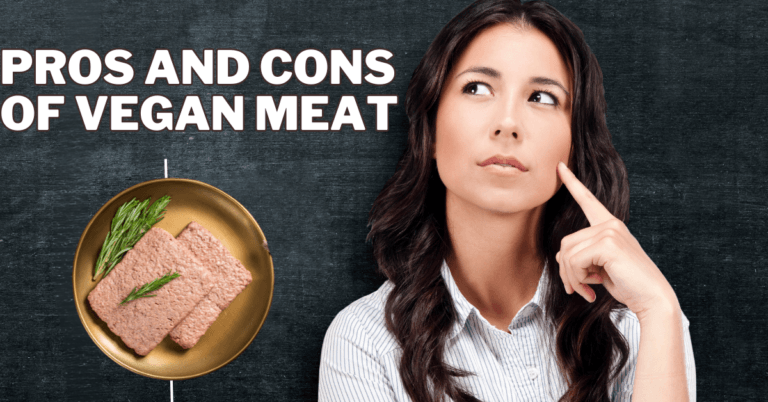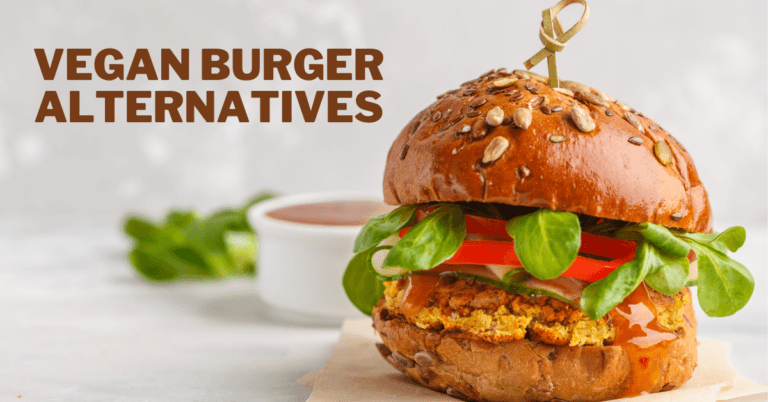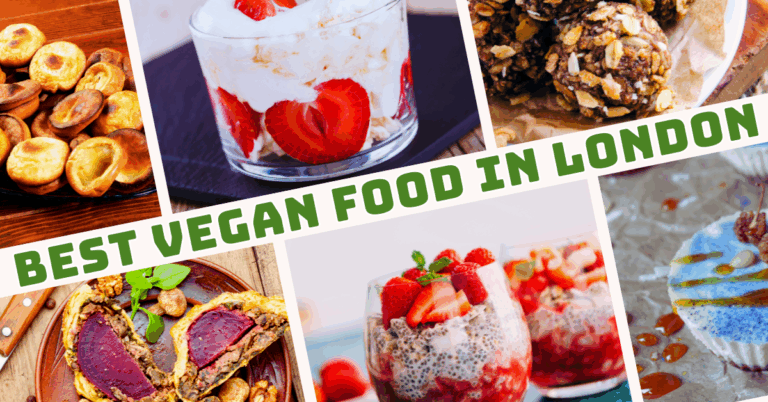A Guide To Vegan Alcohol
A Guide To Vegan Alcohol
The vegan alcohol market has exploded in the last few years, with improved sourcing, better labelling, and even dedicated vegan ranges flooding the global beer and wine industry. Australian wine-makers decided that vegan labelling was a selling point in 2018 and upped their cruelty-free marketing game accordingly.
In the UK, famous food and drink retailer Marks and Spencer’s has responded to market trends by introducing vegan labelling to its wines. In contrast, Britain’s leading wine specialist, Majestic Wines, relaunched its website and labelling system to include dedicated vegan options. The trend towards vegan-friendly alcohol is in keeping with the rapid growth of consumers moving towards more plant-based and meat-free lifestyles.
What Is Vegan Alcohol?
Yes, alcohol can be a vegan beverage choice, provided that the fermented brew is not produced with animal or petroleum-based products. While neither sake nor the fermented mixtures used in alcoholic ciders and beer are technically vegan, both are made without animal products in the final product. Wine and beer are also naturally gluten-free. But what about wine in a bottle, because that may seem quite different?
In short, there is no animal or any other animal-derived product in the bottle: all the ingredients that go into wine, except for water, are vegan. Alcohol is produced from at least one component that can be traced back to a farm, whereas veganism requires that the beverage has never been made or farmed using animal products. Alcohol producers committed to veganism in the past year include:
- Chinook Estate Winery,
- Langtry Estate Wines,
- Cellarmaster Wines,
- Redbreast Wine Co., and
- Mother's Ruin.
To date, no non-vegan alcoholic beverage is certified vegan by the Vegan Society, but the World Vegan Organization allows for one winemaker to declare a non-vegan product vegan. Vegan alcohol generally refers to alcoholic beverages that are produced without the use of animal-derived ingredients. Making vegan alcohol is to eliminate animal byproducts such as gelatin, beeswax, and casein used in the production of some alcoholic beverages, particularly beer.
If you're looking to cut out all animal ingredients in your alcohol, you'll need to start with an ale or lager beer. While most vegan ales and lagers contain flavourings and colourings to mimic traditional brewing processes, they are generally still quite different from traditional ales, lagers, and wheat beers. Some are only a bit vegan, while others can be vegan in their entirety.
Vegan alcohol refers to alcoholic beverages made without using animal-derived ingredients, including meat, eggs, and dairy products. For instance, beer, wine, and distilled spirits are generally vegan, as are most cocktails. The idea behind vegan alcohol is that it either does not contain animal ingredients or uses them in a context that respects their welfare. Many vegan drinkers avoid animal-derived ingredients in non-alcoholic drinks because the industry is mainly devoid of ethical considerations.
This means that most non-alcoholic wine, beer, and distilled spirits still contain some form of animal product. Many, but not all, of the individual ingredients are sourced from livestock (as are many foodstuffs), which means that they could potentially be supporting animal breeding (a cruel industry). Vegans can still enjoy the flavour profiles of alcoholic beverages. The key is to pay attention to the meat and dairy ingredients used to flavour, spice, and preserve the drink, as they usually contain animal products.
The following vegan-friendly products and brands offer excellent alternatives to their meat and dairy counterparts—grapefruit vodka. Not only does this vegan wine add major zing to any cocktail, but it also tastes great straight out of the bottle. Made using grapefruit juice, orange juice, lime juice, vodka, and almond vinegar, it’s a simple cocktail recipe ideal for all-day drinking.
Any Vodka. Vodka and other distilled spirits are standard vegan drinks on the market, as long as the process used to produce it is 100% vegan.
Benefits Of Vegan Alcohol
While the vegan market is still growing, consumers have become more aware of the claims surrounding the origins of their food, drink, and livestock, and there are apparent health and environmental benefits to purchasing cruelty-free. First, it is Good for the environment. For example, the production of plastic bottles alone, which the average person buys 50 a year, takes the equivalent of 1.2 billion trees to produce.
Even when water is extracted from aquifers, the gas used to heat it is a direct by-product of plastic production. As an alternative, reusing glass or tumblers can reduce plastic in landfills and encourage people to drink more water. Another benefit is that it is Great for your health. Both plant-based dairy and alcoholic beverages are high in calcium, potassium, vitamins, and vitamin A.
As a vegan or vegetarian, the effect of drinking alcohol has long been debated. Some doctors and nutritionists consider alcohol to be detrimental to health and often discourage its consumption. The good news is that if you choose suitable drinking, it will most likely be much healthier than the non-vegan alternatives.
Vegan booze has the potential to pack a nutritional punch. Beverages made from all-vegan sources can provide a rich source of protein, carbohydrates, and healthy fats. Vegan versions of alcohol can even be higher in nutrients than their non-vegan counterparts. Maastricht University Hospital, the Netherlands, a recent study revealed that vegan spirits could be up to 16 percent higher in essential nutrients than non-vegan counterparts.
Vegan alcohol does not mean you have to give up enjoying wine and beer, just that you have to avoid animal ingredients like cheese and meat products. Vegan ingredients include all-natural sugar (sucrose, cane sugar, or honey) and fruit juices.
The same labels that distinguish these products from their meat and dairy counterparts, such as no hormones, no GMOs, added salt or preservatives, help vegan drinkers make intelligent buying choices.
Reducing the impact of animal products on your diet is one of the main reasons to go vegan, as well as their environmental impact. Veganism has no adverse side effects on health and is not associated with any physical diseases. As a result, vegans consume up to nine times more alcohol than omnivores.
Vegan wine has improved as a result of this. Wine and spirit producers are developing more balanced products with higher concentrations of grapes and lower sugars. Wine labels have updated their design to reflect this, with an emphasis on fruit and flowers, as well as wine-making methods.
Food shortages have led to a push for sustainable agriculture, a greater demand for fresh produce, a decrease in produce carbon footprints, and a heightened interest in vegan diets. All these factors have created a perfect storm for the vegan alcohol industry.
Vegan beverages include alcohol (wine, spirits, beer), wine juices, vegan beer, and dairy-free milk alternatives. Vegan wine has become a popular choice with the growing vegan community, with many taking it one step further to eliminate animal ingredients. These fully vegan drinks are not only nutritionally complete but also taste great.
How Is Vegan Alcohol Made?
A significant number of popular plant-based beverages and wines contain only plant-based ingredients. There are always a few animal products that might sneak in from other plant-based ingredients.
In general, vegan alcohol producers try to source ingredients as responsibly as possible. To make vegan wines, they often blend wine, brandy or malt wine with water or a plant-based liquid concentrate.
Among the top plant-based beverage brands available worldwide, many vegan producers blend alcohol with plant-based ingredients such as water, soy, coconut, almond, or rice.
Vegans have often had a rather hard time with alcohol (pardon the pun), as its production involves numerous animal processes, such as the gutting of chickens and pigs and the force-feeding of rabbits.
But, as a Vegan, you can cut out some of these parts of the production process and still make a vegan drink, and many leading wineries, breweries, and distilleries have done just that.
The wine produced from the grapes isn’t the only thing you can make vegan. Some smaller wineries are beginning to experiment with fruits and herbs such as rose hips, lavender, rose petals, jasmine, elderflowers, and even caprine feet (hooves).
The production of vegan alcohol, including some gluten-free options, can be done in various ways depending on the producer's choice. There are multiple meat-alternative and dairy-free substitutions that can be made, such as beet, maize, and potato starch. There are also grain alcohols, which have been found to work well in a small proportion of vegan drinks, like gin and spirits, that are also being produced with vegan options.
When vegan wine is made, the alcoholic content of the wine is closer to that of a traditional non-vegan version. Although one area of overlap exists between vegetarian and vegan wine, and that is in the presence of vegetable inclusions. But while that component is on the plate and used to enhance the flavour of food, it’s produced at such a level that it does not exceed the usual legal limit for toxicity of five percent of the weight of the wine.
What Is Vegan Alcohol Made From?
The four main types of vegan alcoholic beverages globally are fruit, grape, licorice, and vanilla. While many grape varietals are well-known to vegan wine lovers, other low-alcohol fruit wines have recently gained more traction.
Tropical fruit beverages such as grapefruit wine or lychee wine are gluten-free and alcohol-free. Grape-based alcohols such as riesling and chardonnay tend to be too high in alcohol for vegans, although such wines also fall within the ‘fruity’ alcohol category.
Vodka is by far the world’s most popular vegan alcoholic beverage. The vodka category in the UK accounted for two-thirds of the British alcohol market and accounts for around 25% of all alcohol consumed.
Most vegan wine and beer is now made from plant products such as rice, sorghum, potato, barley or lentils instead of animal products such as gelatin, casein, milk or cheese.
However, it is still difficult to source vegan options, so most producers rely on different grains, vegetables, fruits, and nuts for their vegan wines, beers, and spirits.
There is no denying that vegan alcohols have a fresh, non-sour, and fruity finish compared with animal-derived versions. The flavours are much more fruit-forward, much more intense and have a more exotic finish.
But many wine and beer brands still have to work hard to attract customers, mainly because they still label their products as ‘beer’ or ‘wine,’ not ‘vegan’ or ‘non-alcoholic.’
Vegan alcohol is made with plant-based ingredients. Many alcohol companies produce vegan booze as a ‘processed vegan,’ which means they have removed the collagen present in all animal proteins.
Vegan alcoholic beverages are generally very different from their non-vegan counterparts regarding what the ingredients are used for. They tend to avoid meat products entirely or use substitutes that don't contain any animal products.
Many vegans avoid refined sugars and instead opt for natural alternatives that are often vegan. You can even build vegan alcoholic beverages from grain-based products, such as rice and millet.
Vegan Alcohol is produced from a wide range of traditional winemaking ingredients, including fruits, vegetables, grains, nuts, seeds, fungi, and herbs. There are many different varieties of Vegan Alcohol, many of which have a grain alcohol base, such as soy or rice. In some types, though, such as Wreckon Organics’ Barnyard Wine, fruits and vegetables are used for fermenting the liquid.
Vegan Beers
The meat-eating world of beer is evolving, with an increasing number of breweries committed to creating new beers that don’t include animal ingredients. In the UK, Tyson’s brewery in Leeds released two new beers, one brewed with carrot juice and one infused with a spirulina extract.
Green Beer gained a cult following among the most popular British brews after being brewed by Lonsdale Brewery in Durham. At the same time, Black Rose is currently a best-seller for London’s Twisted Insurrection.
Brewing Company. If you’re looking for a vegan beer with a hearty kick, the best place to look is Asia. In India, the country that invented India Pale Ale, some of the best-known breweries, including Karnataka’s Tilaknagar and Tamil Nadu’s Kamrasi, are now Vegan Certified.
The title is held by the Fairtrade Foundation for premium beer producers. India’s most popular non-dairy milk alternative, almond milk, is also certified vegan for those looking to cut out dairy from your diet.
Australian brewery Ripegro is launching a vegan range of beer in South Africa to take the most popular ingredients and make a pale ale with minimal processing for your next barbecue. One of the most widely available vegan beers in the UK is Brewdog Punk IPA. This IPA is brewed from vegan hemp seeds, and it has a meaty texture and taste—it’s just packaged in a non-vegan can.
Craft beer writer and Brewer’s Association member James Squire wrote about his efforts to work with vegan breweries to bring beers to market that appeal to vegans.
So far, he’s done quite a bit of the work, collaborating with Chris and Mike at Hopped Animal to make a coconutty pale ale, their successful Ginger Mushroom India Pale Ale (IPA), and their recently released Hopsology. And it’s not just big companies doing it, either. In 2018 some of the small startups making this style of beer they are getting involved in bringing the quality of beer to vegan customers.
Vegan Wines
These wines are certified VeganVino, the first title dedicated to the sustainable production of vegan wines. In conjunction with a non-profit organization, Sanctuary Sanctuary, the VeganWine.com website has added over 1,000 vegan-friendly wines from around the world since its launch in May 2018.
While some of the wines on the website may be sold at higher price points than their non-vegan counterparts, the vast majority of the VeganVino range are affordable options.
VeganVino.shop was developed by Echik Chapple, who was the founder of the Vegan Wine Blog. The categories of the VeganVino.com range are Sparkling and White.
Sparkling wines and meaderies make up the majority of the site, as they don't require fining agents. New Zealand wine producer Marlborough recently launched two new vegan wines, Wild Lemon and Shiraz Melon.
The former contains Marmite marmalade from the UK’s venerable Marmite brand, while the latter is a citrusy, fruity red wine that’s perfect for drinking with Asian-style barbecues. However, Marlborough’s flagship wine, Great Barrier, proves most popular with customers.
The description says it all: “From vine to glass, this is truly unique. A blend of the soil, water, and the fruit of this location.” What does that mean? An authentic and genuinely delicious product for $12 a bottle.
Other notable vegan wine options in Australia include the Roey Rose range, made from the rose hips of local varieties including rooibos and going gom, and a range of premium pinot noir.
Vegan Liquors
Vegans have long had access to alcoholic drinks without animal by-products, but these options are often limited in flavour and consistency. Two of the UK’s most prominent wine exporters, International Wine & Spirits Advisors and the British Wine Institute, are behind the Vegan Spirits Project, certifying vegan wines and spirits for retailers and private-label manufacturers around the world.
The first batch of wines to be certified includes several quality producers and many unique world-firsts, such as the international alcoholic version of a vegan Coca-Cola. Other Vegan Alcohols, The worldwide market for vegan wine is expected to increase by about 30 percent by 2024. This year saw a surge of new alcoholic products produced by vegan distilleries.
We’re talking everything from distilled spirits to liqueurs and even beer. Granny Smith Vegan Vodka – Don’t overthink about what Granny Smith is, then! Portland Vodka – With a brain-bursting 88% less alcohol than regular vodka, this organic-certified liquid is ideally suited to cocktails. While America still lags behind the trend of vegans consuming alcohol, craft distilleries are coming out with vegans-only spirits and mixers.
Bars like Queen of Tarts in Brooklyn add vegan-only liquors and tonics, including non-alcoholic and gluten-free options. Even Coca-Cola announced that it was considering creating a line of vegan beverages for the market. And at the other end of the alcohol spectrum, vegan mixes have also seen a surge in popularity.
Parisians love their kombucha, but unlike traditional kombucha, a vegan version of this funky fermented tea doesn't use milk or sugar. After launching its vegan kombucha blend in France, African brewery Sankofa took the mix on tour in France and New York, and the verdict was overwhelmingly positive.
Tips For Finding Vegan Alcohol
While most major alcohol companies have announced their desire to offer vegan wines and beers, it’s harder to find. Many of them haven’t just pledged to produce an increasingly expansive range of vegan products and list them on their websites. To check if a bottle of beer or wine is vegan, look for the Non-Animal-Derived Ingredients (NADIs) logo on the label.
Most of the world's largest wine companies—Château Mouton Rothschild, Domaine de la Romanée-Conti, Veuve Clicquot—have all committed to or plan to expand their vegan products.
Italy’s 2015 DOC regulations for wines also prohibit the use of non-vegan ingredients in wine production. While vegan alcohol is more available in Europe, it can be harder to find in the U.S. However, there are still several options available. Below are some of the vegan wine options currently available in the United States.
The wine bubble has taken off in the last few years, so it’s no surprise that many different bubbles are now available to choose from. However, there are quite a few in the market, so the chances of finding one you love are slim to none.
One of the newest options is Champagne Madeira, which is made from Port, Madeira, and sugarcane juice. It is similar to Moscato but with a richer and more complex flavour. It’s only made available in France, Germany, Switzerland, the Netherlands, and South Africa.
Price Of Vegan Alcohol
Veganism isn't necessarily cheap, and neither is going vegan. There is no silver bullet for budgeting your way to a healthier lifestyle, but there are a few tips to keep in mind. As always, it's worth checking online to see the cheapest places to buy vegan foods so that you're not paying an arm and a leg just because your local supermarket is on a big brand discount.
It's also worth buying vegan whenever possible when it comes to staples like snacks, lunch packs, and fruit juices, especially if you're buying fruit that isn't organic, as in many cases, it'll be pesticide-contaminated.
It’s no secret that vegan items tend to cost more than their non-vegan counterparts, but not all vegan products are quite as pricey. If you’re a wine drinker, consider choosing a wine under £15 per bottle and exploring a range of exciting vegan wine labels. For beer drinkers, look for products that have interesting names to match the flavour.
Even if you love your traditional favourites, you can search “vegan beer” to find an array of craft vegan beers and their derivatives. If you’re a wine and spirits drinker, consider going for a vegan spirit. Alcohol-Free Rum, for example, is available in several forms (including alcohol-free and vegan) and is renowned for its taste and smell.
Conclusion
Many alcoholic beverages are vegan by nature. Nonetheless, some items contain or are processed using animal products. Some non-vegan ingredients, such as honey in honey beer or lactose in milk stouts, may be visible.
On the other hand, many others aren't identified by name and can be challenging to spot, primarily if they're used as fining agents to filter or clear the drink. Manufacturers rarely specify ingredients due to loose labelling rules.
As a result, if you're still confused, look for a vegan icon on the product or contact the maker directly.
I trust you enjoyed reading the article about A Guide To Vegan Alcohol. Please stay tuned. There are more blog posts to come very shortly.
JeannetteZ
Your Opinion Is Important To Me
Ideas? Thoughts? Questions? I would love to hear from you. Would you mind leaving me your questions, experience, and remarks about A Guide To Vegan Alcohol in the comments section below? You can also reach me by email at Jeannette@LivingTheVeganLifestyle.org.
>>>Please click here to read more about the Vegan Diet on Wikipedia<<<
Here are some links to some of my favourite articles:
A Guide To What Vegans Eat Daily
7 Best Vegan Candy Bars To Try
How To Choose The Best Vegan Milk

